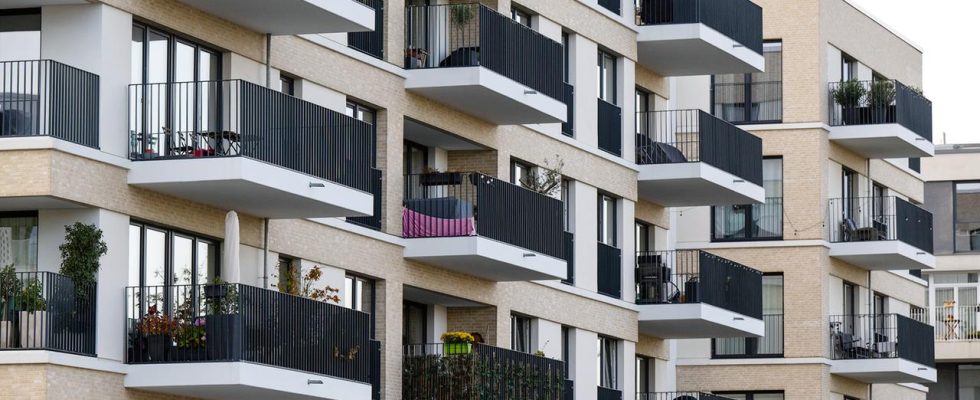Construction prices in Germany continued to rise in May – albeit not quite as rapidly as recently. Heating systems, work on the roof and earthworks have become particularly expensive.
The price increase in residential construction weakened somewhat in the second quarter, but construction is still very expensive. As reported by the Federal Statistical Office, the prices for the new construction of conventionally manufactured residential buildings in May rose by 8.8 percent compared to the same month last year. In the previous reporting month of February, an increase of 15.1 percent was recorded within one year. Compared to February, prices in May were up 0.8 percent.
According to the information, shell construction work on residential buildings increased by 5.4 percent year-on-year. Price drivers included masonry work, the costs of which rose by 7.4 percent. Roofing activities increased in price by 10.8 percent, earthworks by 9.4 percent.
Price jump for heating systems
According to the statistics office, the prices for finishing work in May 2023 increased by 11.7 percent compared to the same month last year. The prices for carpentry work increased by 11.6 percent. Among the finishing works, these have the largest share in the construction price index for residential buildings.
The prices for heating systems and central water heating systems rose particularly sharply – they rose by 14.9 percent. The price increase for thermal insulation composite systems was only slightly lower.
Decline in residential construction expected
Also because of the increased costs, the ifo Institute expects a sharp decline in residential construction. The Munich researchers predict that only around 245,000 apartments will be completed in new buildings this year and only 210,000 in 2024. In 2025, together with the other completions, there should only be around 200,000 residential units. That would be only half as much as the target set by the federal government.
“The most important reason for the decline is the significant increase in the cost of financing and construction work,” said Ifo construction expert Ludwig Dorffmeister. “At the same time, the federal government has drastically cut back new construction subsidies and tightened the standards for new construction again at the beginning of 2023.”
How strong property prices could go down
According to a study by DZ Bank, prices for residential real estate could fall between four and six percent this year given the difficult general conditions. In 2022 they had increased by seven percent. “Measured against the significantly poorer financing conditions and the uncertainty about future investments in energy renovation and new heating technology, the price drop in the single-digit percentage range appears moderate,” says the study.
“It is possible that sellers are still reluctant to make price concessions because they are speculating that interest rates will fall,” say the banking experts. It is quite possible, but by no means certain, that prices will fall further with a time lag.

